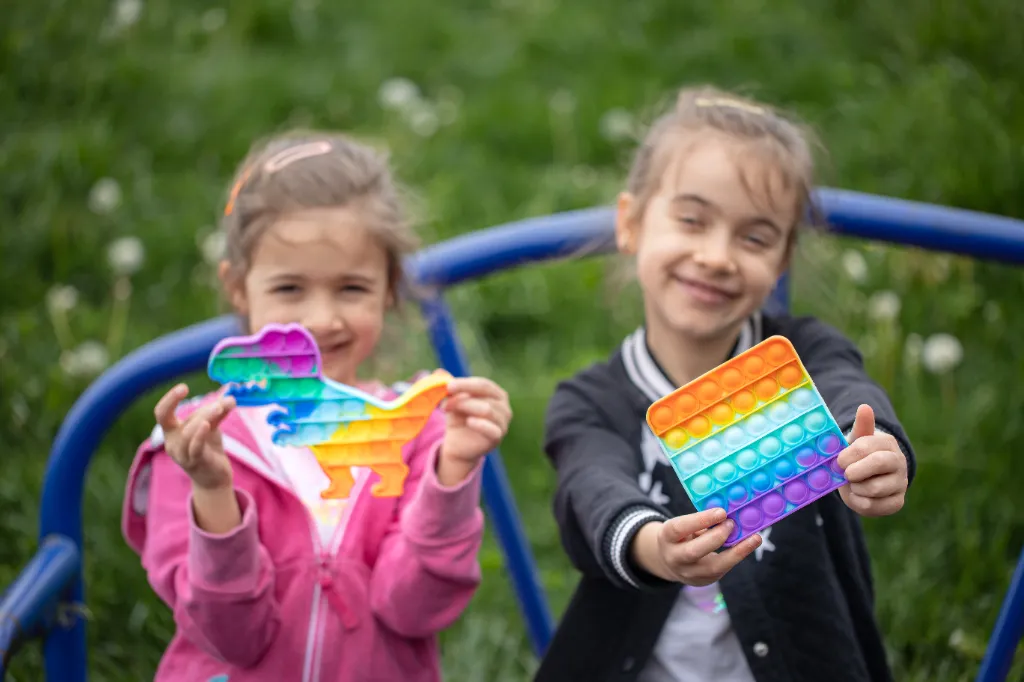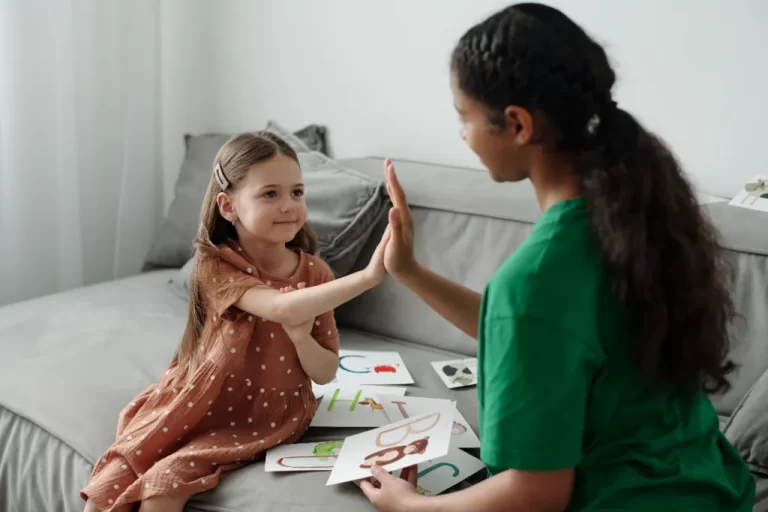Importance of Addressing Sensory Impairments in Children
Our senses work together in harmony, with no one sense particularly standing out. Simply said, all our senses work in modulation, and we can rely on them to react accordingly to each stimulus. We can do that by gathering enough information to communicate back to our brains to help us react appropriately.
Sensory impairments happen when one or more of our senses don’t work harmoniously with the others. Living with sensory impairment can put people at risk of anxiety, depression and lack of confidence, but also, people can feel isolated and marginalised.
Early intervention is essential for children with sensory impairments, especially in preventing isolation and stigma. For example, early intervention for children with hearing impairments is crucial, as it can enhance the development of their speech. It is essential for children to receive early intervention so they can receive proactive support.
Types of Sensory Impairments in Children
Sensory impartments do not affect the cognitive skills of children. However, some children with sensory impairments have difficulties processing information, which can affect how they learn. With the right support, children can find solutions for their challenges, improving their confidence and well-being.
Some of the most common types of sensory impairments include:
- Visual Impairments
- Hearing Impairments
- Olfactory Impairments
- Dual Sensory Impairment
- Sensory Processing Disorder
Visual Impairments
Sight impairments can vary from mild to severe.
Visually impaired children may have low vision or permanent vision loss, which cannot be corrected by using glasses and can affect daily functioning. People with low vision lose sensory sight and cannot recognise objects or people nearby. Some people may use supportive devices or objects to help them move around and perform daily activities. Individuals are considered blind if their visual field is less than 20 degrees in diameter.
Hearing Impairments
Hearing impairment is a mild or severe hearing loss which can be caused by a number of factors like infections, injuries and birth complications.

Hearing loss can range from mild or partial to significant hearing loss, which is presented as a total loss of hearing. Most people develop hearing loss as they age, but children can also be diagnosed with a hearing impairment. Some of the impairments can be corrected by wearing hearing aids. Early intervention is essential in helping deaf children learn a way to communicate. British Sign Language, or BSL, is the most common sign language used by children and other people with hearing loss.
Speech Impairments
A child with a speech impairment may have difficulty with sound production, voice resonance or the flow of speech. Children vary in speech development and language skills, and while there are many milestones healthcare professionals expect children to hit before turning a certain age, every child is different. However, speech impairments in children can cause challenges with vocal communication, so proactive support is crucial in helping children develop their language and communication abilities.
Olfactory Impairments
Our sense of smell informs us about our surroundings, and it is the only sense that remains active during sleep. A sensory impairment that impacts smell is called an olfactory impairment, and a sensory impairment of the olfactory function can have a significant impact on quality of life. Most of the causes of olfactory impairment are irreversible, and children need lifestyle modifications to help minimise risks and have a better quality of life.
Sensory Processing Disorder
Sensory processing disorder is a condition where children can have difficulties receiving and responding to environmental information. Children with a sensory processing disorder may misinterpret sensory information and can under-respond or overreact to information. Other signs of sensory processing disorder include:
- Incoordination
- Sounds may be too loud or irritating
- Difficulty engaging in conversation with other children
- Light may feel too bright
- Clothing may feel itchy
- Bumping into things
Multi-Sensory Impairments (MSI)
When we talk about children with sight and hearing impairments, we talk about children with multi-sensory impairments. Sight and hearing are often known as the distance senses because they give information about what is around us.
When we cannot process information around us, we cannot communicate and respond to that information. When one of the distance senses is impaired, information from other senses can be used to compensate to some degree. Children with multi-sensory-impairment use all other senses together in order to gain information. For many children, touch can provide significant help in learning about the world around us and serve as a means of communication.
Some children with MSI are very skilled in recognising movement around them and can feel even the most subtle change in air pressure on their skin and recognise people by their smell.
Assessment and Diagnosis of Sensory Impairments
Performing an assessment of a child’s sensory status is the key to determining what types of services and support will help them to maximise and promote the use of other senses.
Sensory assessments involve both informal and formal assessments. Specialists like audiologists and ophthalmologists usually perform formal assessments, while informal assessments often focus on observing how the child behaves in their environment. All information collected helps create a clear picture of a child’s abilities and needs.


Early Diagnosis
Early diagnosis can vastly improve the quality of life for sensory-impaired children. The diagnosis can give a clear path to achieving milestones and help children with their development. For example, children with a visual impairment may require help learning how to use their fine and gross motor skills. An early diagnosis can help create a strategy of how children with sensory impairment will utilise all their other senses, and get support from family and the community, to live an enjoyable, fulfilling and active life.
Risk Factors
In the UK, 2 million people live with sight loss, with 340,000 registered as partially sighted or blind. Additionally, 40% of people with a learning disability also have a hearing impairment.
Risk factors for sensory impairments are more significant in adults than in children and include:
- Genetics
- Injuries and infections
- Cataracts
- Difficulties during birth
- Loud noises
Impact of Sensory Impairments on Child Development
Sensory impairments have a huge impact on children, but through proactive methods and strategies, children can still experience healthy development.
Children with visual impairments may struggle to differentiate facial expressions and may be unable to see reactions to things, so they are also unable to learn by watching and require different educational methods. Some impairments lead to restricted mobility, hugely impacting how children play. Play development is essential for children’s development as it leads to learning about concepts such as social skills. It’s important to find different methods to help children play, ensuring the inclusion of activities. Promoting acceptance, accessibility, and equality is critical to helping children feel confident and empowered.
Promoting Inclusion and Accessibility
Promoting inclusion and accessibility for people with sensory impairments into everyday activities involves creating policies and practices to remove barriers. Removing barriers in communication and helping individuals gain the ability to have full participation in society is what makes a stronger and more cohesive community.
We should focus on promoting people’s rights and make efforts to promote disability inclusion which is essential for portraying the diversity in our society.
Unique Community Services Support Children with Sensory Impairments
At Unique Community Services, we embrace diversity, inclusion and equality. We create pathways for people with sensory impairments to thrive in our society.
The people we support are our main priority, and we accept everyone for who they are. By creating an accepting and supportive environment, we help people reach their potential and become active members of society.
We deliver person-centred care across the UK, and you can contact us today to find out more about our services.













